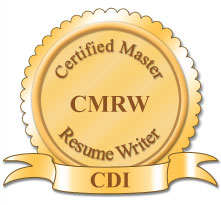 Last week I received for my review and editing an 84-page document from the company implementing my Infusionsoft program. The document consisted of poorly-written drafts of multiple email messages that will be going to both customers and writers at The Essay Expert. The messages cover situations such as clients who have not turned in their questionnaires; people who fill out a contact form and don’t respond to our calls; assignments of clients to writers; and much more.
Last week I received for my review and editing an 84-page document from the company implementing my Infusionsoft program. The document consisted of poorly-written drafts of multiple email messages that will be going to both customers and writers at The Essay Expert. The messages cover situations such as clients who have not turned in their questionnaires; people who fill out a contact form and don’t respond to our calls; assignments of clients to writers; and much more.
The language in the emails was too informal for my company’s brand, and there were spelling and grammatical errors in pretty much every one. Not a single email was written in a way that I would want it to appear to my clients. Although my assistant had done some editing on the document already, there was a whole lot left to do.
How would you feel if you received an 84-page document like this to edit? Does “overwhelmed” describe it sufficiently?
For me, “overwhelmed” was a fairly accurate description, which I identify as a combination of anger and fear. As I went through the first 15 pages, however, I began to realize that I did not have to be overwhelmed by this project – at least not now. Patterns began to emerge in the errors that had been made, and I suddenly had a big insight: I could delegate editing this document back to my assistant! I wrote a list of four tasks for her that, once completed, would make my job a lot easier.
My feeling of overwhelm suddenly subsided, and although I might experience it again when I receive the next draft, I have reduced my stress level significantly.
The feeling of overwhelm has, no surprise, surfaced in my business before. I experienced it when I started getting dozens of LinkedIn invitations per week and “had to” respond to all of them myself. I experienced it when I was entering my own bookkeeping data. I experienced it when I was posting my blog article to WordPress every week and finding images to insert. I experienced it when I was creating screenshots for my e-book. And I experienced it while organizing my leads and conversions each month, pulling from multiple email folders to create a complete list.
In every one of these cases, I managed to let go of doing the task myself, figure out what I was doing so that someone else could do it, and hand it over. None of this was easy for me, as I am rather controlling and want things done right. I had to make a shift in thinking from “I’m the only one who can do this” to “I can teach someone else how to do this.”
The benefit of successful delegation has been my freedom. My business has grown, and yet I have more time to do things I want to do for myself: cook, do yoga, spend time with friends, and concentrate on my personal growth.
I am now regularly on the lookout for signs of overwhelm because I know that it means it’s time to expand, let go, trust, and create freedom in a way I might not have believed was possible.
Where in your life are you experiencing being overwhelmed by a project? How can you enroll others to make it look more doable? I’d love to hear about the challenges you’ve experienced, solutions you’ve implemented, and any new ideas you have for approaching big tasks so you can thrive.











Your strategy of identifying repetitive errors to facilitate editing reminds me of an approach to translation that I learned about when guest lecturing at the Moscow State Social University. Translation students would begin by searching a text for repetitive words, look up the translated version and build a mini-dictionary to help translate the entire document. I don’t know how common this approach is, but it made a lot of sense to me. And, it’s probably something that can be automated.
Great observation John. Thank you!
This is an interesting post. I intend to use your tips so I can get out from under the paper pile too! Thanks Brenda !!!